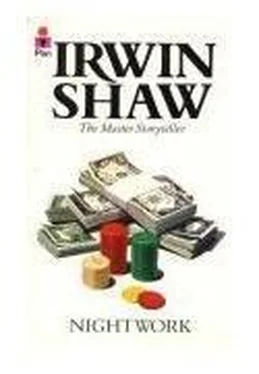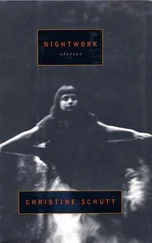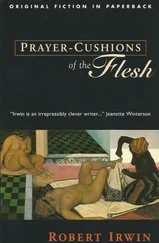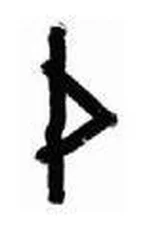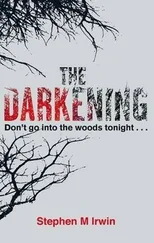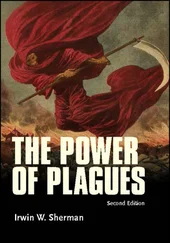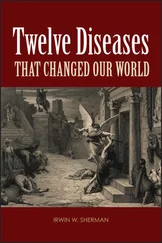Fabian was lying on his back now on the pavement, holding his chest with his two hands. He was breathing in loud, irregular gasps. There was a little light reflected off the road top from our headlights. “I think we’d better get me to a hospital, old man,” he said, with long spaces between the words. “Fast. And tell Priscilla to please stop yelling.”
I was trying to lift Fabian, as gently as possible, into the back seat of the car, when I became conscious of headlights approaching from behind me. “Sorry,” I said to Fabian, who was half in and half out of the car now. “There’s somebody coming.” I picked up the gun again and stood between Fabian and the oncoming car. Priscilla had stopped screaming and was sobbing wildly in the front seat, hitting her head dementedly against the dashboard. I didn’t know which was worse, her screaming or this.
As the car approached, I saw that it was a police car. I dropped the gun I was holding. The car came to a halt and two policemen jumped out, their revolvers in their hands.
“What’s going on here?” the one in front asked harshly.
“There’s been a holdup. Two men. They’re in the woods somewhere. My friend’s been shot. We’ve got to get him to a hospital right away.”
“Whose gun is this?” The policeman asked, bending down to pick it up from where it was lying at my feet.
“Theirs.”
“You jumped a guy with a gun?” the policeman said incredulously.
“Not me,” I said. “Him.”
“Holy man,” the policeman said softly.
He helped me put Fabian into the rear of the car, while his partner, a thin man with glasses, who looked too young to be a policeman, went to inspect the car with the hood up that the two men had been examining when we drove up. “That’s the car, all right,” he said when he came back. “We’ve been looking for it. It was stolen last night at Montauk. We got a description from a gas station at Three Mile Harbor. Lucky for you.”
“Real lucky,” I said.
He looked curiously at Priscilla, who was still knocking her head against the dashboard, but he didn’t say anything. “Follow us,” he said. “We’ll lead you to the hospital.”
With the lights of the police car all flashing and the siren going, we sped down the dark roads. Coming the other way, I saw first one, then another police car racing past us toward the scene of the holdup. They must have sent out a call by radio from the car ahead of us.
* * *
The operation took three hours. Fabian had lapsed into unconsciousness before we reached the hospital in Southampton. An intern had taken one look at Priscilla and had her put in a bed under heavy sedation. I sat in the anteroom of the emergency ward, trying to answer the questions of the policemen about what the men looked like, the sequence in which things had happened, what we were doing on the road at that hour, who the lady was, whether or not I thought I had hit one or both of the men when I fired at them. It was hard to sort the things out. My mind felt numb overwhelmed. It was hard to make the policemen understand who Priscilla Dean was and how it happened she didn’t know where she lived. They were unfailingly polite and not suspicious, but they kept asking the same questions, in slightly different ways, over and over again, as though what had happened couldn’t have happened the way I thought it bad. I had called Evelyn as soon as they wheeled Fabian into the operating room and told her Fabian had had an accident but I was all right, not to worry. I told her I’d give her the details when I got home.
It was about midnight when the young policeman came back from using the phone to tell me the two men had given themselves up. “You didn’t hit either one of them.” He couldn’t help grinning as he said it. I would have to go to the police station in the morning to identify them. And so would the lady, he added.
When Fabian was wheeled out on the operating table he looked calm and peaceful. The doctor, in his green smock and mouth-mask, now hanging at his throat, looked grave as
he pulled off his rubber gloves. “It’s not so goods” he said to me. “We’ll know better in twenty-four hours.”
“Twenty-four hours,” I said dully.
“He’s a good friend of yours?” the doctor said.
“A very good friend.”
“Where did he get that long scar on his chest and abdomen?”
“Scar? I never saw a scar,” I blinked. “I guess I never saw him except with his clothes on.”
“It must have been something fierce,” the doctor said. “It looks like shrapnel. Was he wounded in the war?” The doctor , was young, too, no more than thirty-two or thirty-three, and I wondered, briefly, what he knew about wars.
“Yes,” I said, “he was in a war. He never told me he was wounded though.”
“Live and learn,” the doctor said briskly. “Good night.”
When I went out of the hospital, there was a flash in my eyes and I cringed. But it was only a photographer, taking my picture. Wait until tomorrow, friend, I thought, when they get dear old Priscilla Dean down to the police station. There’ll be some pictures to be taken then.
I drove home slowly, the road blurring uncertainly before me. Evelyn was waiting up for me and we each had a Scotch as we sat in the kitchen and I told her the whole story of the evening. When I finished, she bit her lips and said, “That miserable woman. I could strangle her with my bare hands.”
In the morning, the story was in the Long Island papers, with my picture. And, of course, Priscilla’s. Before I went to the police station, I called the hospital and was told Fabian was resting comfortably. I probably could come and visit him for a few minutes later in the morning. Priscilla got to the police station just ahead of me, with uniformed escort. There must have been ten photographers waiting for us. Inside, we both identified the two men, although how Priscilla could have seen what they looked like in the darkened car with all her screaming and thrashing around was beyond me. They had both confessed anyway, so the identification was really a formality.
The two men looked harmless in the light of day. They weren’t men, really. Neither of them could have been much more than eighteen, scrawny and frightened, with bad adolescent complexions and fake-tough mouths that quivered when the cops addressed them. Punk kids, my policeman friend called them contemptuously. It was difficult to believe that just a few hours before they had shot a man and had tried to kill me and I had tried to kill them.
When I left the building, the photographers tried to get me to pose with Priscilla, but I just kept on walking. I had had enough of Priscilla Dean.
* * *
I talked to the doctor before I went in to see Fabian. The doctor was optimistic. “He came out of the operation much better than I thought he would. I think he’ll be around for a while.”
Fabian was lying flat in the neatly made bed, with tubes leading into his arm and somewhere in his chest under the covers. The room was sunny and there was the smell of newly cut grass through the open window. He smiled wanly as I came in and raised his hand in greeting.
“I just talked to the doctor,” I said as I drew up a chair next to the bed, “and he says you’re going to be all right.”
“I’m glad to hear that.” His voice was frail. “Imagine dying to save the honor of Priscilla Dean.” He laughed faintly. “What we should have done was introduce her to those two boys.” He laughed again, a little rasping noise. “They could have gone off to Quogue together and had themselves a hell of a night.”
“Tell me, Miles,” I said, “what possessed you to go for that goddamn gun?”
Читать дальше
